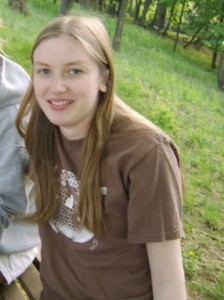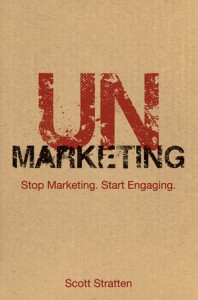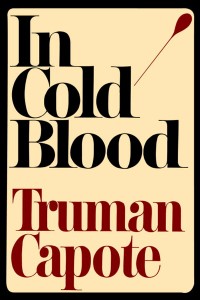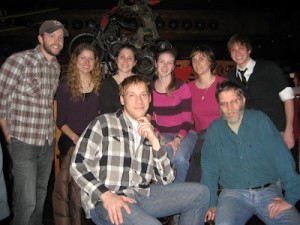Have you ever heard the term, “shoulder surfing?” It is the practice of peering over someone’s shoulder to look at what they are viewing on the internet, particularly if they are logged into sites that have content that isn’t visible to the general public. I recently read this Time article about employers asking interviewees to log into their Facebook so they can shoulder surf your profile, thus getting around those privacy controls. This has caused enough of an uproar that Facebook actually commented on it, urging users not to allow employers to circumvent the privacy settings as it is actually a violation of Facebook’s user agreement. All this (and some other stuff) has got me thinking about what role Facebook plays in my life.

Hello freshman year profile picture, you’re looking particularly innocent today.
In August 2005, I was extremely anxious for my freshman year at Lehigh University to begin. My brother, one year older and thus a fountain of wisdom about such things, insisted (and I do mean insisted to the point that he set it up for me) that I needed a profile on this thing called Facebook. Back in those days Facebook was just for college students, so you didn’t have to worry about your mom, the kids you used to babysit, or your employer checking up on you. It seems crazy to me now how safe that little fact made us feel.
We posted just about everything. We wore our lives in the open on a profile, most of the time without security settings. We covered each others walls with pieces of flair and bumper stickers (yeah, remember those?) to show how cool we were with our inside jokes. We tagged ourselves in pictures out on the dance floor, beer in hand at tailgates, and crowded into the mirror in the ladies room (I shake my head at my own participation in such bathroom photo shoots). I didn’t think about the implications of such posts further than, “oh thats funny, except my bra strap is showing, alright detag.”
Fast forward seven years to where I am now, finishing up grad school and getting my ducks in a row for my impending job hunt. I started looking at my Facebook profile with a more critical eye when Facebook went from requiring a college email address to open for the general public. While in the grand scheme of Facebook, I never had anything on my profile that I considered particularly inappropriate (how lame of me, I know) I became much more vigilant about what was said on my wall and what pictures I was tagged in. I started thinking about how harmless jokes that I understood the meaning of could be seriously misinterpreted because Facebook took them out of the context in which they occurred. I’m now friends with both my parents and several of my aunts, which can be a useful barometer for the appropriateness of your content. I have my profile set for “only friends” and I am only friends with people I actually know. You won’t see any pictures on my Facebook profile that I would be embarrassed to see elsewhere on the internet. I understand that private comes with risks.
Still, the nature of my Facebook posts and pictures is inherently personal. Just because the content is of an appropriate nature and it wouldn’t be the end of the world if it got out doesn’t mean I actually want to see any of it elsewhere on the internet. Why should my vacation pictures be open for all when really I just wanted to share them with my aunts? That picture of me with no makeup? Yeah I don’t mind if my brother sees it, he already knows what I actually look like, but a business contact I’ve never met in person? Not so much. I feel like there is still something about the personal Facebook those of us who jumped on the bandwagon back in the only college days just don’t want to let go. Not because it was safe and personal, but because it felt that way. I have established Facebook for seven years as a running conversation with close friends and family. Turning it into a free for all makes me feel seriously exposed.
I use Twitter professionally. My blog is professional. My website is professional. LinkedIn is obviously professional. I have, but don’t use Google+. So what is it about Facebook that I don’t want to turn over to my professional life? I believe my main audience is on Twitter, but at the same time I fully recognize that there are other target audiences that are most reachable by Facebook. There could be real value in turning Erin Podolak into a business page, but I just don’t want to do that. I know I’m not alone in this either, because it is a sentiment that has been expressed over and over again by my fellow students in the social media for the life sciences course I’m taking this semester.
In class we had the opportunity to pick the brain of Sarah Bedrick from Hubspot. She gave us a lot of great advice, in addition to nobody likes a whiner she also told us to use common sense online. This includes but is certainly not limited to making sure all of your public profiles would hold up to public scrutiny. In addition to Bedrick, we’ve also been able to talk to Mark Schaefer, John Morgan, and Joe Sorge all of whom got asked the same question about keeping Facebook personal, and all of whom echoed the same sentiment that they don’t separate the content of any one of their social media platforms into personal and professional. It all just blends, and if it is personal to the point that you don’t want to share it openly you should probably think twice about posting it in the first place. I understand this, I mean it doesn’t get simpler than just “use common sense” but at the same time I still hold onto my Facebook “privacy” as though it is my precious.
Just use common sense isn’t satisfying. I already use common sense. I’m not ashamed of my Facebook, but I’m still not going to accept your friend request if I don’t know you. I think what we all wanted to be told was that it’s okay to reserve Facebook for just us, to keep it just for our friends and family. The truth of the matter is that if I think Facebook has professional value, I’m going to have to cut back on my posts even more. This will mean not using it for picture sharing, or to post the funny things my roommate says. Not because those things are inappropriate, but because they just go to a level of my personal life that I wouldn’t share with just anyone. If I don’t want to use Facebook to connect with anyone I don’t already know, then fine just keep it clean and keep on keepin’ on. But is my comfort level on Facebook worth the possible lost connections?
I think it is time for my generation to say goodbye to Facebook as we knew it. We aren’t going to get back the “safe” little bubble for inside jokes and silly pictures with our friends. We need to let go of that image of Facebook. It may need to be wrenched from my resistant little fingers, but then again there is a huge difference between understanding something and implementing it. I understand that safe on the internet can only be so safe. That doesn’t mean I have to like it.
So what do you think? Should I go the public route on Facebook? (I’m only sort of hoping for a no…)
 The idea of UnMarketing is that traditional methods of marketing don’t even come close to the kind of success you can have if you just start listening to and interacting with people. Simple enough, right? Well then why aren’t I doing it? I’m a science writer, looking for a steady job. I’ve tried, and failed, to freelance my work in the past. I’m firmly convinced that my freelance failure had everything to do with marketing myself in traditional ways. UnMarketing is about making connections with real people. You make those connections based on mutual interests, you build a relationship around it, and later down the road you’ll be in a position to help that person or they’ll be in a position to help you. People will be way more likely to give you a chance if they trust you and they like you.
The idea of UnMarketing is that traditional methods of marketing don’t even come close to the kind of success you can have if you just start listening to and interacting with people. Simple enough, right? Well then why aren’t I doing it? I’m a science writer, looking for a steady job. I’ve tried, and failed, to freelance my work in the past. I’m firmly convinced that my freelance failure had everything to do with marketing myself in traditional ways. UnMarketing is about making connections with real people. You make those connections based on mutual interests, you build a relationship around it, and later down the road you’ll be in a position to help that person or they’ll be in a position to help you. People will be way more likely to give you a chance if they trust you and they like you.


